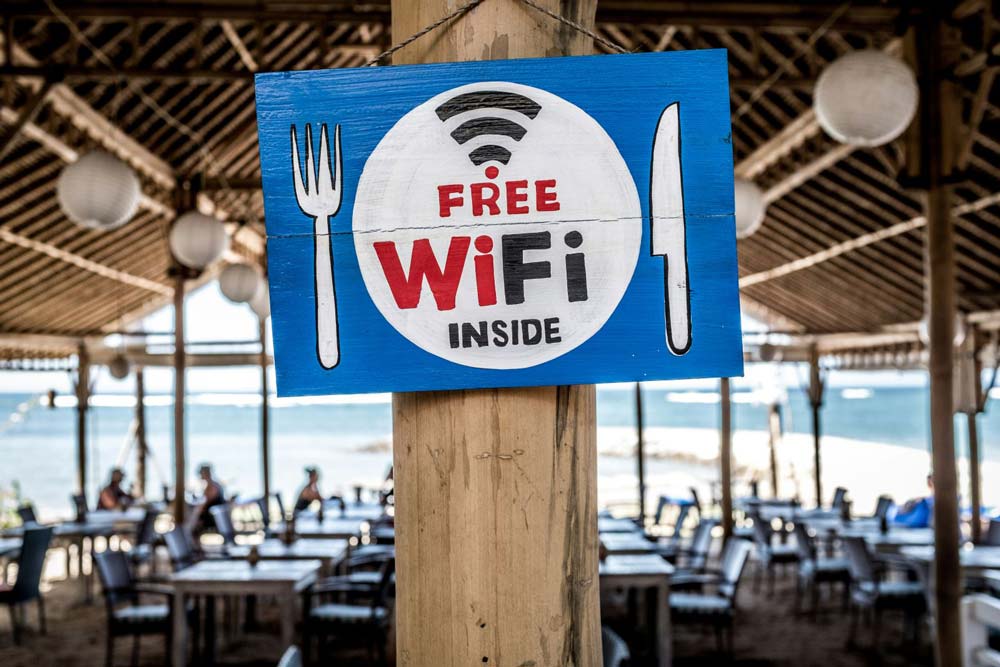How to Protect Yourself from Scammers on the Internet
The internet is such a great thing, but it also attracts scammers who prey on average users in order to steal money, personal information, or an account.
How to protect your personal information and make sure your online transactions are safe? This article offers simple yet effective tips and rules of cybersecurity to help you act on the internet safe from scammers.
Knowing The Most Common Scams
1. Phishing Scams
Firstly, let’s make sure we know the most common scams. Phishing scams happen when bad people send fake emails that look real. They want to steal your personal information, like passwords and credit card numbers.
How to Spot Phishing Emails
- Look for general greetings like "Dear Customer" instead of your name.
- Watch out for spelling mistakes.
- Check the sender's email address to see if it looks suspicious.
- Ask yourself whether you subscribed to this website or not
How to Avoid Phishing Websites
- Make sure the website address starts with "https://"
- Look for small changes in the website address that seem off. For example, it can be “yuotube” instead of “youtube”.
2. Identity Theft
Identity theft is when someone steals your personal information to commit fraud. This can cause financial loss and harm your credit score.
How to Protect Your Personal Information
- Don't share your Social Security number, credit card information, or other sensitive details.
- Check your credit reports for any unauthorized activities.
3. Online Shopping Scams
Scammers may create fake online stores to steal your money or personal information.
How to Ensure the Store is Legitimate
- Check reviews and ratings (Google Rating, for example) of the online seller.
- Look for contact information and a physical store address on the website and then check on the map.
How to Make Secure Payments
- Have a special dedicated banking card with a small amount of money for online payments.
- Use a credit card for online transactions as they offer greater fraud protection than debit cards.

Internet Safety Rules
While the internet is a great place for fun, work, and staying in touch, you also need to guard your personal information carefully.
1. Think Before You Post
The internet has a long memory. Once you hit the "Post" button, that information can resurface later, potentially impacting your career, relationships, or even legal standing. Be mindful of what you share, especially personal details like your address, phone number, or social security.
- Examples of risk
Posting your home address could lead to unwanted visitors. Sharing vacation plans can signal to burglars that your home is empty. - Best practice
Avoid sharing personal schedules or detailed location information.
2. Privacy Settings Are Your Friends
Most online platforms offer privacy settings that allow you to control who sees your information and posts. Take advantage of these settings to curate your online presence.
- How to use
Regularly review and adjust privacy settings on social media, email, and other online accounts. Limit visibility of your posts to friends or specific groups. - Why it matters
Protects you from unwanted attention and potential identity theft.
3. Be Careful with Links and Attachments
Fraud and scammers often use engaging sales links or attachments to download spreading malware. Before clicking on anything of that kind, check who is the sender. You can also hover your mouse pointer over a link to see the actual URL and avoid clicking if it doesn't match the displayed text. Download files from official websites.
- Signs of Danger
Emails with urgent offers, from unknown senders, or unexpected attachments. - Preventive actions
Use antivirus software and keep it updated. Enable email filtering to block spam and phishing attempts. For the best antivirus software to use, check out this article: 10 Best Antivirus Software Tools in 2025

4. Be Cautious with Public Wi-Fi
Public Wi-Fi networks are often unsecured, making your data transmissions vulnerable to interception. Avoid accessing sensitive information like bank accounts or credit cards while connected, and consider using a VPN (virtual private network) as an extra layer of security. Additionally, disable file sharing on your device when on public Wi-Fi.
- Risks
Eavesdropping, man-in-the-middle actions, and data theft. - Precautions
Use encrypted websites (https) and avoid logging into sensitive accounts on public networks. Use a VPN tool and an antivirus.
5. Stranger Danger Goes Digital
Online interactions can be rewarding, but remember, not everyone has good intentions. Criminals may have accounts on social media, gaming platforms, or chat rooms. Encourage children and teens to use strong privacy settings and only connect with people they know in real life.
Parents and guardians should monitor children's online activity and discuss online safety. Don’t hesitate to report suspicious or uncomfortable interactions to the platform and block all communication with the offending user.
- Parental Tips
Use parental controls and monitoring software. Have regular discussions about online safety and the importance of not sharing personal information.
Cybersecurity Rules at Work
Many internet safety precautions apply at work. There's an extra layer of importance when it comes to protecting sensitive business information.
1. Use Strong Passwords
Use strong, unique passwords for all your work accounts and change them regularly. Never share your work passwords with anyone. Consider using a password manager to help you create and store secure passwords. Ask your boss regarding the cybersecurity rules in your company. This question shows that you are a responsible employee, it also indicates that you really care about the company’s success which depends on cybersecurity.
- Password strength
Use a mix of upper and lower case letters, numbers, and special characters. Avoid using easily guessable information like birthdays, your name or common words. - Password management tools
Consider using tools like LastPass or 1Password to manage your passwords.
2. Access and Share Information Carefully
Only access information that is necessary for your job duties. Do not share confidential company data with unauthorized individuals. If you're unsure about the legitimacy of a colleague’s request for information, verify it with your supervisor or IT department.
- Data protection
Use encryption for sensitive data and ensure proper disposal of physical documents. - Verification steps
Always check the identity of people asking for information. (e.g., phone calls).
3. Watch Out for Phishing
Phishing scams are a common tactic used by hackers to gain access to company data. Be especially wary of emails and attachments that appear to be from colleagues or clients, particularly if they request sensitive information or seem urgent. Always verify the sender's address and directly contact the person who requested sensitive information.
- Phishing indicators
Spelling errors, generic greetings, and mismatched URLs. - Response protocol
Report suspicious emails to your IT department and avoid clicking on any links or downloading attachments.
4. Suspicious Activity Alert
If you see anything suspicious on your work computer, such as unusual pop-ups, unknown software installations, or unexpected changes to your accounts, report it to your IT department immediately. They are equipped to investigate and take necessary action.
- Common Signs
Slow computer performance, frequent crashes, and unauthorized access attempts. - Immediate actions
Disconnect from the network and run antivirus scans.
Conclusion
Staying safe online requires awareness of common threats. Remember, a little vigilance goes a long way in protecting yourself and your valuable information. As the saying goes, "Safety first is safety always." By being informed and cautious, you can significantly reduce any risks of experiencing online scams. Stay safe. Thank you for reading.
Read More: Internet Marketing Trends expected in 2025
Blog Categories
Forum
-
...









